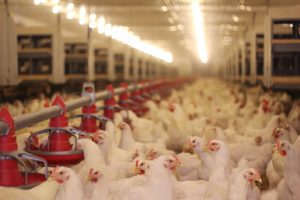
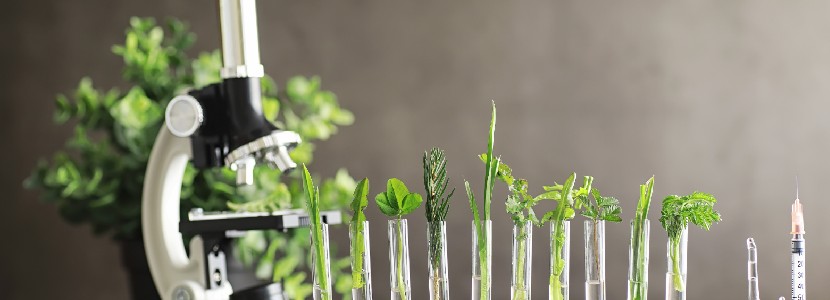 14 Jun 2022
14 Jun 2022
Phytobiotics and their inclusion in animal feed has been proposed as a replacement for traditional growth promoters over various decades now. However there are still doubts regarding their true worth within animal production.
Introduction
The use of growth promoters has been widely implemented as a strategy for improving productivity within the meat production industry in the past decades. With the aim of improving parameters like weight gain and feed efficiency in animal production to obtain increased yields. However, due to the significant human and animal health risks associated with antimicrobial resistance, the use antibiotic growth promoters (AGPs) has been banned in several countries. This has also lead to an increased number of consumers who are concerned about their food quality and security above all. Therefore, the use of synthetic chemicals, such as (AGPs) which were regularly used in the livestock and meat production industry, have become highly rejected by the public. Such factors, have triggered an active search for alternatives that can replace synthetic growth promoters and be able to offer similar yield benefits. The following entry aims to offer a complimentary review to the previous publication regarding dietary inclusion of phytochemicals as alternative growth promoters for cattle, pigs and poultry.
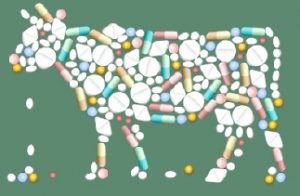
Impacts of dietary inclusion of phytochemicals in animal production chains
Alternative growth promoters are expected to produce similar or better effects compared to traditional growth promoters. However, most of the studies and conclusions drawn in regards to the the effects of phytochemical feed additives are based on human medicine. Many of these studies have also proposed the use of such supplements to replace antibiotic growth promoters which are largely used during the initial and development stages of animal production. Very few studies have focused on analyzing the replacement of traditional growth promoter in the termination stage (i.e., anabolics). Up until now, there is a reduced number of in vivo studies (mainly limited to poultry and swine) or performance tests to assess changes in production parameters. Considering parameters like: carcass and meat quality amongst others, which present hard evidence to support the inclusion of phytochemicals as alternative growth promoters within animal production.

Growth performance
Currently used growth-promoting modulators of ruminal fermentation and modulators of the gastrointestinal system and animal metabolism have been shown to have positive effects on growth performance. Exhibiting increases ranging between 10 and 20% in daily weight gain and feed efficiency.
Effects on poultry
Most of the in vivo studies evaluating the effects of phytochemical inclusion in broiler diets have shown positive effects on growth performance parameters, such as weight gain, feed intake, and feed conversion according to the review of previous literature. Such results are similar and even better than what has been observed in treatments with positive controls (i.e tylosin). For most of the mentioned studies the majority of used phytochemicals(extracts derived from: thyme, oregano, agronomy, clove, lemon, balm, red pepper, black cumin seed, Artemisia leaves, Macleaya cordata; essential oils: thyme, cinnamon, oregano, anise, citrus peel and rosemary) were included throughout the three main production stages. For these studies mainly commercial plant and herb extracts were employed as feed additives. Some studies evaluated simple phytochemical inclusion, such as isoflavone, quercetin, naringin, and hesperidin.
From the reviewed literature, only a few studies reported no significant effects or negative effects. Positive results on productive parameters were mostly observed with the inclusion of phytochemical mixtures throughout all production stages. On the other hand, when phytochemicals were supplemented in a single phase and/or as isolated compounds (i.e quercetin, genistein, isoflavone) no significant effects or even negative impacts were observed on production parameters.

Chicken Farm, eggs and poultry production
Effects on pigs
Compared to poultry, the inclusion of phytochemical feed additives throughout pig production stages has not been widely assessed. Most researchers have only evaluated supplementation in the initial or finishing phases of intensive feeding regimes. The phytochemicals which have been used in pigs may vary but are predominantly composed by plant and herb extracts, and less frequently by isolated compounds such as: ferulic acid, resveratrol and phytoestrogens (genistein and daidzein). Studies by (Zhou et al.) found positive effects on daily weight gain, feed intake and feed conversion, while (Biquan et al. Janz and Rossi et al.,) found no significant differences regarding productive parameters. In another study by Bruno et al., investigators found positive results when using tylosin and a mixture of plant extracts within the finishing stage.
Phytochemical feed additives which have been used experimentally in pigs have mainly been proposed as alternatives to antibiotic growth promoters. Although most of the porcine studies have used phytochemicals in the finishing phase, only an in vivo study proposed ferulic acid as an alternative to type β-adrenergic agonists as animal metabolism modulators. This study found similar effects on productive parameters as those observed in animals treated with ractopamine hydrochloride.
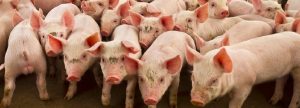
Research involving ruminants has mainly focused on inducing changes in the ruminal microbiome and its subsequent effects on ruminal fermentation. In vitro studies have been conducted with the aim of improving energy production and metabolites that contribute to increased muscle tissue. However, when it comes to beef cattle and sheep there are still very few in vivo studies which evaluate the effects of dietary inclusion of phytochemicals.
Most studies carried out in cattle analyzed the effects of essential oil inclusion in growth and finishing phases. The main simple phytochemicals that have been tested in these species are: ferulic acid, eugenol, hydroxycinnamic acids, and cinnamaldehyde. In contrast to the effects observed on productive parameters in poultry and swine, these parameters were not modified or were only minimally modified in bovines . Yang et al. reported negative effects resulting from a high inclusion level (1600 mg/d) of eugenol during the finishing phase. Lin et al. conducted two experiments with different doses (0 to 500 mg /l) of eugenol, carvacrol, citral and cinnamaldehyde and observed a decrease in methane production, protozoa, fungi, Ruminococcus fibrisolvens and Fibrobacter succinogenes at the higher dose. However, high phytochemical concentrations inhibited the growth of microorganisms and ruminal fermentation, which are important activities for the conversion of nutrients in muscle tissue .
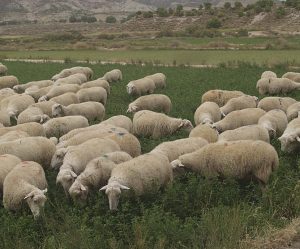
Moreover, recent studies have suggested dietary supplementation with ferulic acid, a member of the hydroxycinnamic acid family that can be isolated from agro-industrial by-products, as an alternative to the β-adrenergic agonists that are used in the final phase of intensive fattening of beef cattle. Similar to the effect observed with a commercial β-adrenergic agonist treatment, a 12% improvement in feed efficiency and productive parameters has been observed with the use of ferulic acid in steers. Due to the chemical characteristics of ferulic acid, it can be assumed that other phytochemical hydroxycinnamic acid derivatives would exert a similar effect.
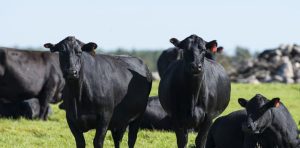
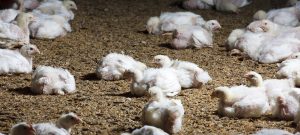
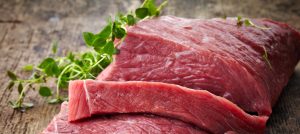
Subscribe now to the technical magazine of animal nutrition
AUTHORS

Nutritional Interventions to Improve Fertility in Male Broiler Breeders
Edgar Oviedo
The Use of Organic Acids in Poultry: A Natural Path to Health and Productivity
M. Naeem
Synergistic Benefits of Prebiotics and Probiotics in Poultry, Swine, and Cattle
Gustavo Adolfo Quintana-Ospina
Hybrid Rye Potential in Laying Hen Feed Rations
Gwendolyn Jones
A day in the life of phosphorus in pigs: Part I
Rafael Duran Giménez-Rico
Use of enzymes in diets for ruminants
Braulio de la Calle Campos
Minerals and Hoof Health in the Pregnant Sow
Juan Gabriel Espino
Impact of Oxidized Fats on Swine Reproduction and Offspring
Maria Alejandra Perez Alvarado